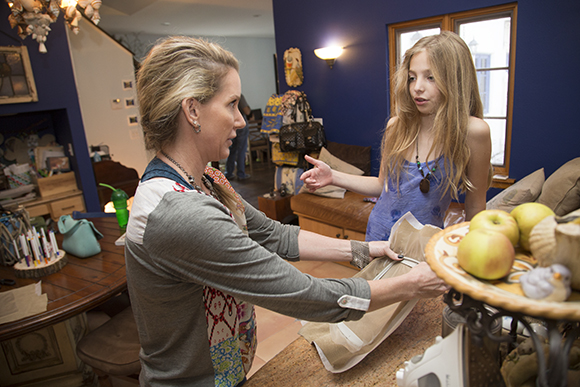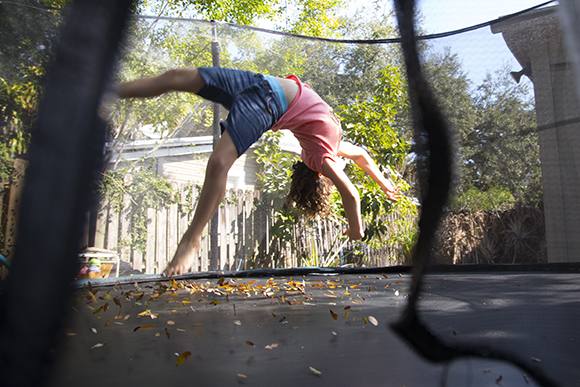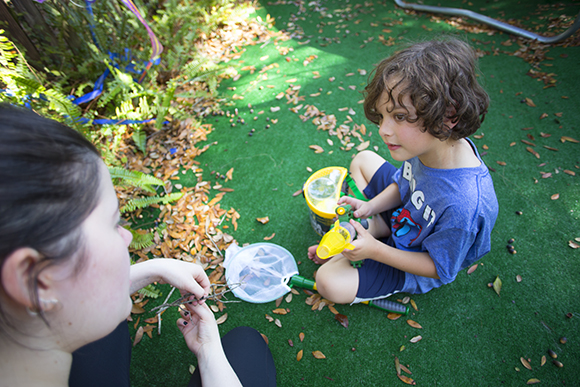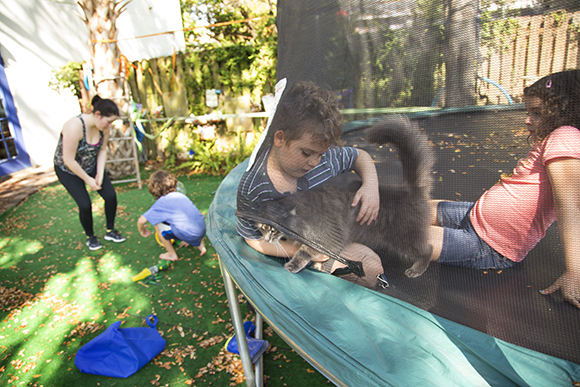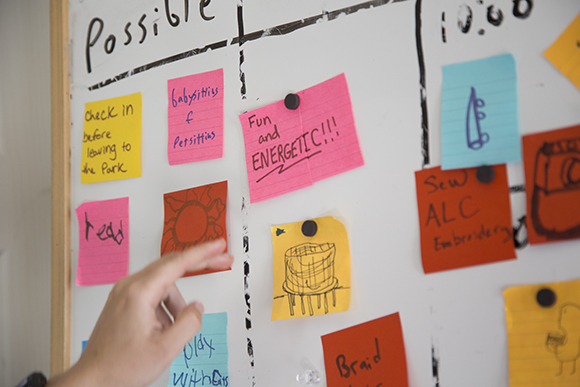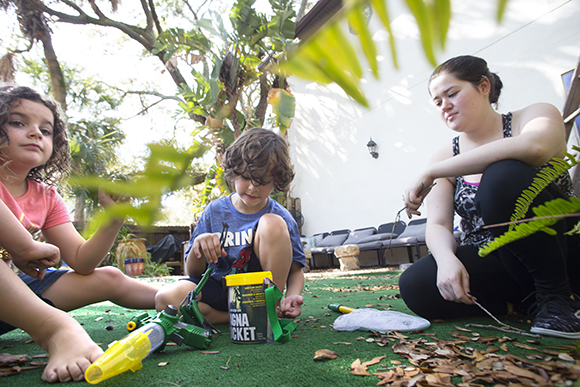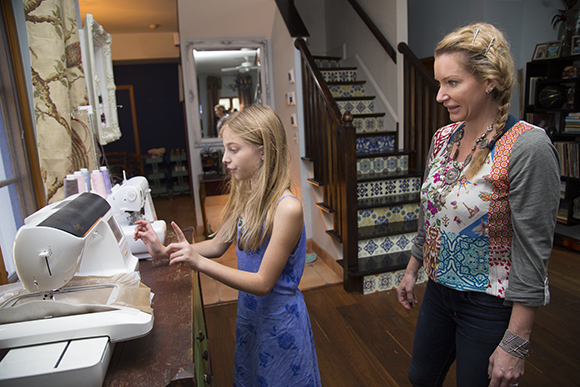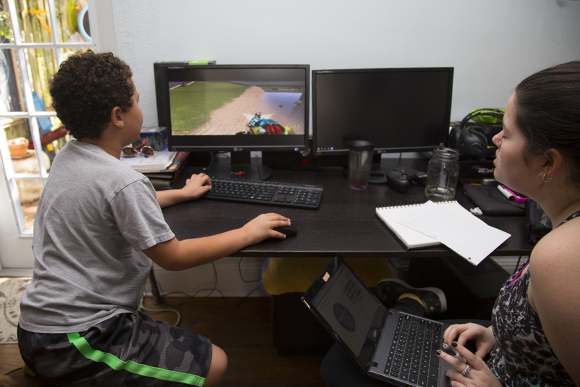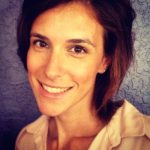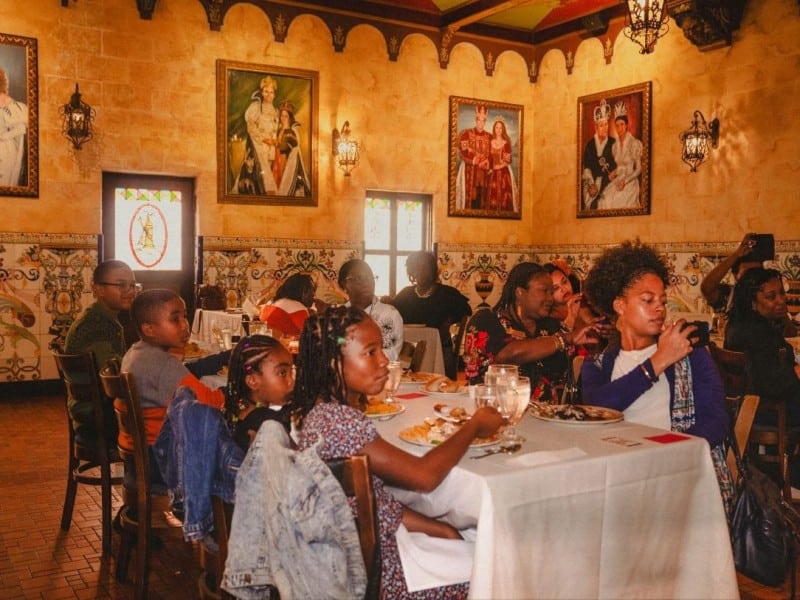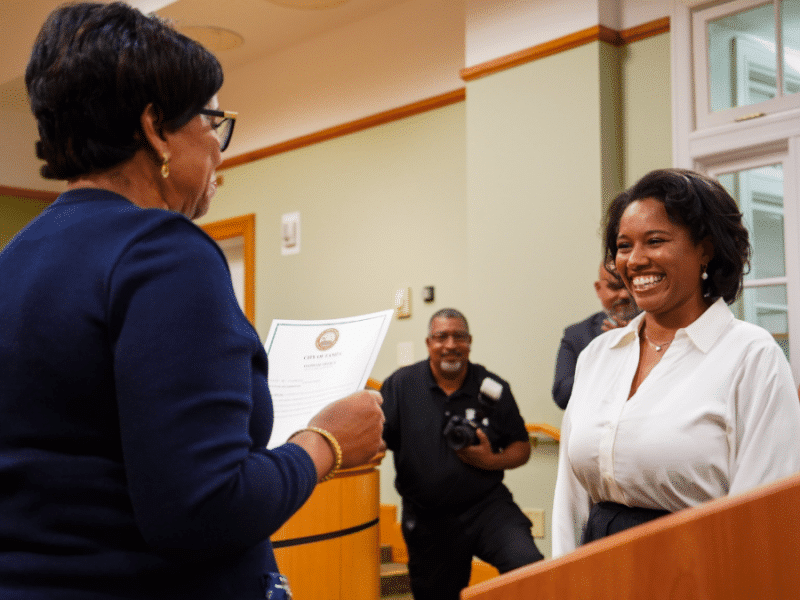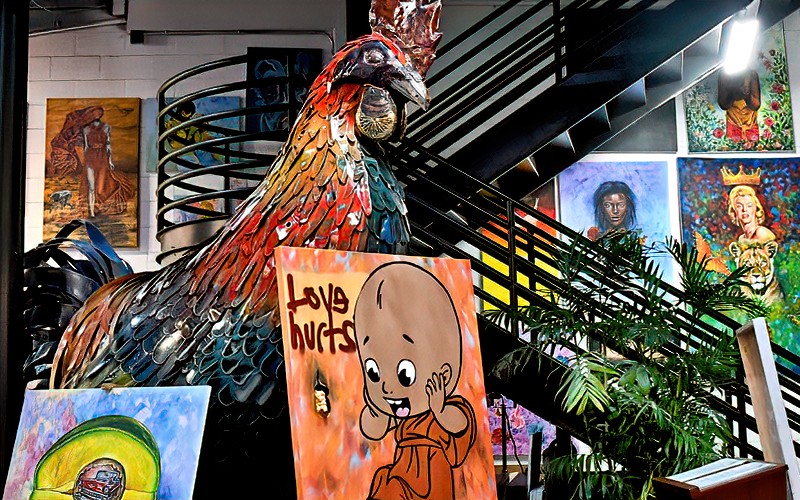Local STEM thought leaders rally support to create space for youth to study robotics
The goal? To create a space where Tampa-area youths can work on robotics projects, test their creations, and plug into a rich network of mentors and resources.
“My dream job is to become a mechanical engineer,” says 12-year-old Nicolas Musy, a student at the Agile Learning Center (ALC) in Hyde Park. “I just think it would be so cool to have robotics in the [school] building, and virtual reality stuff to work on and design.”
Nicolas, like the other 14 students who currently attend the ALC, sets his own learning goals (intentions, actually). The private school embraces a child-directed philosophy that empowers students to be active participants in their educations. The outdoor learning area looks a little different from what you might expect from a school. Instead of a basketball court, there’s a giant trampoline where students can grab bounce breaks throughout the day. An acoustic guitar sits on a sectional couch, while chickens cluck away in the nearby grass and kids take their lessons barefoot.
At the ALC, students have the opportunity to let their curiosity drive the learning experience. And what many of them are curious about these days, it turns out, is engineering.
Nicolas might get his wish to have access to more STEM materials in the classroom if tech entrepreneur Marvin Scaff has his dream come true.
Scaff, a thought leader in the local startup community who co-founded Gazelle Lab and now this school for kids, has teamed up with his longtime connection and robotics guru Terri Willingham. The goal? To create a space where Tampa-area youths can work on robotics projects, test their creations, and plug into a rich network of mentors and resources.
“In my happy vision, it would be really cool to have a robotics learning center co-located with engineering and tech businesses; you have your talent pipeline with these kids working there, you have a ton of internship opportunities, and you have built-in mentors,” says Willingham.
The jumping-off point is a $30,000 grant she was recently awarded by the Argosy Foundation. In addition to being a regional director for Central Florida’s FIRST STEM education programs, Willingham is also a producer for ROBOTICON Tampa Bay. The wildly popular FIRST K-12 STEM Showcase attracted 2,000 participants and guests in 2016 at the USF Sun Dome Arena. This year’s event, taking place in October, is already in the works.
10,000 hour rule
If there’s one thing Willingham has learned from her time facilitating robotics competitions, it’s that kids need a place to practice. Just as student athletes have practice fields, young engineers are also hungry for a permanent space to learn, grow and thrive. Willingham hopes the grant will help seed such a space.
“We’re going to buy a large FIRST Robotics Competition field and a FIRST Tech Challenge field,” she says. “We’re also going to invest in different robotics kits so we can have them on hand for training and loan.”
The fields are quite literally a big deal — Willingham says she needs a minimum of 7,000 to 8,000 square feet to accommodate everything. After winning the grant in the fall, she reached out to the tech community for ideas. When Scaff got wind of her vision, he suggested co-locating her project with the Agile Learning Center, which currently operates out of his home.
“It was what I call intentional serendipity,” he says. “With this collaboration and partnership, we intend to create a competitive robotics team for the ALC, along with other local kids whose schools don’t have something like this in place.”
So where do the mentors come in? Scaff is also working with Vyocor, a virtual reality (VR) company that has plans to move to the new space, as well. Their presence will give kids access to cutting-edge motion-capture technology and machine learning, along with the tech professionals who work with it. In theory, students could use this technology to build and optimize their own competitive robots. Scaff says he also has another VR company interested in co-locating.
Building community
Additionally, the initiative has much to offer not-so-tech-savvy kids.
“Being on a team like this is great for kids interested in marketing,” Scaff adds. “They have to come up with branding for their team name, logo, blog posts, getting exposure, and so on. And the team, as a whole, has to work together and solve problems together.”
The next step to bringing it all together is locking down a space, which is currently in the works. Willingham and Scaff have identified a Tampa location they say is ideally suited for the project. They’re currently in the process of finalizing lease details and initial funding sources.
FIRST is a nonprofit that’s been around for nearly three decades. Today it serves more than 400,000 students in over 80 countries. “We have over $50 million in scholarships available to kids involved in the program,” says Willingham. “We need to stop treating education as separate from economic development and workforce readiness and entrepreneurship; it’s all connected.”
That connectedness is best fostered, she believes, within settings that support hands-on, side-by-side learning with engineers who do these things for a living.

